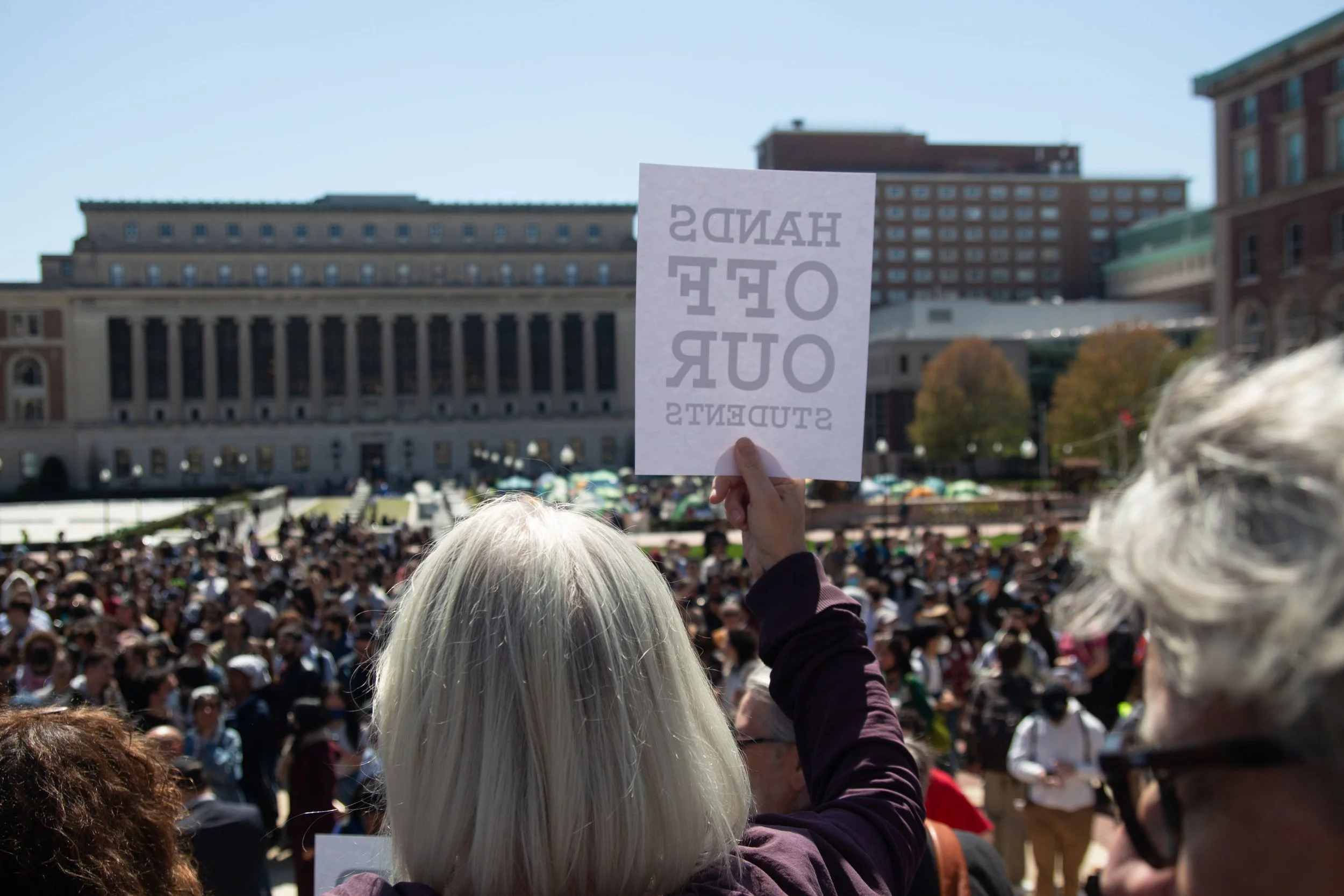When Protest Becomes a Deportable Offense
How the U.S. Is Targeting Pro-Palestinian Voices on Campus
The U.S. government ramped up its opposition to pro-Palestinian activism on university campuses starting with Mahmoud Khalil. Khalil was a lead negotiator during the 2024 Columbia University “Gaza Solidarity Encampment”, who faced detention and the threat of deportation despite being a legal permanent resident. President Donald Trump’s administration has justified these actions as part of a fight against what it calls “rising antisemitism and threats to U.S. foreign policy.” This crackdown has reignited fears over freedom of expression—fears deeply rooted in a long, well-documented history of political repression in the U.S.
On Jan. 30, Trump announced a crackdown on pro-Palestinian campus actions, threatening institutions that allow protests with loss of federal funding and warning of expulsion or deportation for participants. But visa revocation and deportation in times of civil unrest are not new to the U.S.
Beginning with the Alien Friends Act of 1798, the U.S. has passed laws allowing the deportation of foreign-born individuals based on their political ideologies. The U.S. has used these laws primarily to suppress criticism of the U.S. government and penalize association with Communists and groups the U.S. says are terrorist organizations.
Such laws remain intact because the Supreme Court treats them as immigration matters rather than First Amendment issues. Under the plenary power doctrine, the federal government has broad authority over immigration, including the power to exclude or deport non-citizens based on political beliefs. This doctrine allows the legislative and executive branches to override constitutional protections like free speech and has been upheld in cases such as the Chinese Exclusion Case (1889), where the Court supported a law barring Chinese laborers without applying substantive constitutional review.
It’s this history that sets the stage for cases like Khalil’s to unfold.
On March 8, U.S. Department of Homeland Security (DHS) officials detained Khalil, an Algerian citizen of Palestinian descent and a U.S. green card holder. DHS officials did so without a warrant as he and his wife returned to their Columbia-owned apartment.
In a statement posted on X, formerly Twitter, DHS justified Khalil’s arrest by citing his involvement in “activities aligned to Hamas, a designated terrorist organization,” under the framework of Trump’s executive orders aimed at “prohibiting anti-Semitism.”
Although federal Judge Jesse M. Furman initially ruled that Khalil could not be deported without the court deciding on Khalil’s challenge, Immigration Judge Jamee E. Comans later ruled the government’s deportation argument has legal standing. Khalil was subsequently held for 104 days at the LaSalle Correctional Center in Louisiana.
The initial decision by Judge Comans supported the Trump administration’s argument as reflected in a brief memo from Secretary of State Marco Rubio. Rubio asserts that Khalil’s “beliefs and associations” contradict U.S. foreign policy interests, which constitutes sufficient grounds to deport a lawful permanent resident from the country.
But on June 11, U.S. District Judge Michael Farbiarz issued a preliminary injunction blocking the government from deporting or detaining Khalil based on those foreign policy claims. Although the ruling was delayed until the following Friday to allow time for a government appeal, it dealt a significant blow to the administration’s case.
Judge Farbiarz concluded that Secretary Rubio’s determination that Khalil’s “presence or activities would compromise a compelling U.S. foreign policy interest” was likely unconstitutional as a basis for deportation. He also rejected DHS's subsequent claim that Khalil could be detained for allegedly omitting information from his green card application, ruling that it was insufficient to justify continued detention.
Khalil was released on June 20.
Read the rest of Francesca Maria Lorenzini’s article by downloading the edition, ordering a print copy or becoming a subscriber today!




